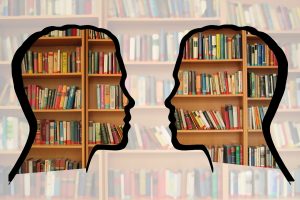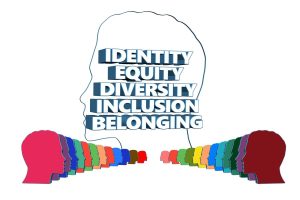
The module ‘Power of Stories’ hits home for me. There is a happiness that I find in connecting with people from all different backgrounds and places. I try to find something in common with all patrons that I talk to. Looking through the module, something that I notice Professor Stephens points out right away is that “the underserved and the invisible should feel welcome and encouraged in our spaces” (Stephens, 2024). I completely agree with this. I oftentime notice that patrons who are new to the library can seem awkward because they are not comfortable (yet!). This is the perfect opportunity for me to strike up a conversation to make sure that they know this is a safe place. I love to ask questions about what they are interested in finding or complimenting a piece of jewelry or clothing that they are wearing. This seems to ease people into conversation and before you know it, we are friendly enough to say hello outside of the library.
I think that learning about cultural humility and competence in Professor Houde’s class has helped me to understand how to better deal with people in a public setting. The ‘Power of Stories’ module touches on both humility and competence while comparing and contrasting the ideas but I truly believe that these concepts go hand in hand. Something that I learned from Houde in 275 is that you must be aware of your own bias and prejudices before you can be culturally competent and practice cultural humility. I agree with this completely. Understanding that every single person who walks through the library doors has lived a different life and experienced different experiences is going to make my job that much easier. I have the knowledge in my brain to understand that thus far, I have lived a very privileged life. I have not had to deal with things that other people have and I can’t even pretend to try to understand some situations. It just isn’t possible! With that being said, although I have not lived it, I can practice competence but understanding that I am always going to be able to learn from other peoples stories and offering them support if possible. I also like to think that I exhibit cultural humility by reflecting and having an attitude that is not all knowing and powerful.

I also really quite enjoyed the video of ‘The Power of Stories’ by Kylie and Felicity. I think that it is so important to understand that stories can be told without words. Actions, behaviors, art, sensory experiences, etc. can all contribute to a story. Not a word in sight! I especially think this is important because I have a special education background and it is such a hard concept to explain to people that just don’t get it. There are many people that I ran into during my public school education jobs where people think that non-verbal = not understanding. This is especially shocking when you consider that these are people who work daily with the students. A lot of time I found that my nonverbal students were extremely intelligent and just had difficulty with communication because they had not been given the proper tools. When I was in college, I met an adult man who only had mobility in his knee. He used a button to communicate and the way that he moved his knee changed the output for his communication. He was able to communicate that he was hungry, bored, had to use the restroom, needed something, etc. and I thought it was absolutely fascinating to be able to connect with him as he otherwise would not be able to communicate.
Lastly, I think it is important to understand inclusive practices and communication especially in libraries. People and technology are adapting faster than we can keep up with but I believe that in order for libraries to be inclusive to all users, we must have inclusive practices. This includes allowing children access to programs in non-traditional ways, no questions asked.


Hi Carlee,
Great post, thank you for sharing! You brought up such good points regarding cultural competence and humility. There is no way we can directly relate all the various life experiences of everyone who steps into the library, but the least we can do is be equipped with the tools and be ready to help anyone with an open mind and heart!